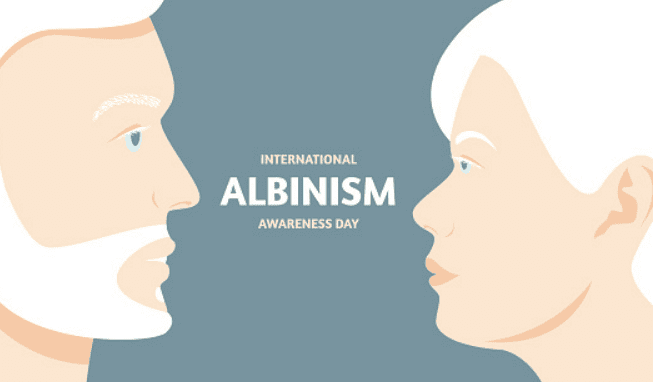The National Albinism Task Force in South Africa on Tuesday made a desperate plea for all citizens to embrace people living with albinism in all spheres of life.
International Albinism Awareness Day is observed annually on June 13 to create awareness about a genetic skin condition called albinism, and to promote the rights of people living with the skin condition globally.
This year, the day is celebrated under the theme Inclusion Is Strength.
The day is further celebrated to put an end to misconceptions and stereotypes related to the skin condition, and also to encourage the inclusion of people suffering from albinism.
Albinism is a genetic condition in which there is either less or no pigmentation in certain organs of the body including hair, eyes, and skin.
Such people lack one of the most important pigments of the body called melanin, which is responsible for skin pigmentation.
Besides pigmentation, melanin has several important functions such as protecting the skin from harmful UV (ultraviolet) radiations. Due to the absence of melanin, albinos are often at a higher risk of skin cancer.
The inclusion of persons with albinism signifies their dignity as human beings and their
rights to life being protected.
It further confirms that persons with albinism are capable and, therefore, should not be treated differently from other people.
This year’s theme highlights the importance and benefits of:
• Including a broad spectrum of persons with albinism in albinism-related discussions,
including youth, women, children, older persons, LGBTQ+ and persons with albinism of all
races and ethnic backgrounds.
• Collaborating and embracing albinism within the disability movement and in other sectors where decisions affect persons with albinism; and
• Seeking synergies with human rights groups and other groups from outside the albinism
movement.
The task force said there is no cure for the absence of melanin that is central to albinism.
“While numbers vary globally, the condition is much more prevalent in sub-Saharan Africa
than other parts of the world, with estimates of 1 in 1 400 people being affected in
Tanzania and prevalence as high as 1 in 1 000 reported for select populations in
Zimbabwe and for other specific ethnic groups in southern Africa,” said the task force.
Follow @SundayWorldZA on Twitter and @sundayworldza on Instagram, or like our Facebook Page, Sunday World, by clicking here for the latest breaking news in South Africa.



